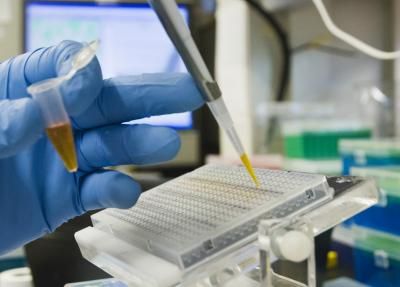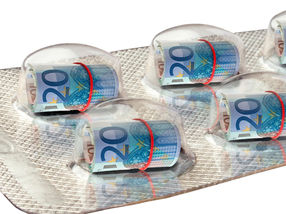Roche's weekly taspoglutide meets primary end-point in key Phase III study
Taspoglutide demonstrates superiority in HbA1c change versus placebo as add-on to metformin and pioglitazone
Roche announced that its Phase III study T-emerge 3 met its primary endpoint of change in HbA1c. T-emerge 3 is a study of once weekly taspoglutide versus placebo, as add-on to metformin and pioglitazone. The results of T-emerge 3 showed that taspoglutide demonstrated superiority in HbA1c change versus placebo following 24 weeks of treatment. The study analysis included 326 patients, randomized into three arms (taspoglutide 10 mg once weekly, taspoglutide 20 mg once weekly and placebo).
In this study taspoglutide was generally well tolerated and the most frequently reported adverse events among taspoglutide treated patients were nausea and vomiting. In addition to the already released T-emerge 1, T-emerge 2, T-emerge 4, T-emerge 5 and T-emerge 7 studies, data from T-emerge 3 will be submitted for presentation at upcoming international scientific meetings. A further two T-emerge Phase III trials exploring taspoglutide in patients with diabetes are ongoing.
Roche exercised its licensing option for taspoglutide from Ipsen in 2006 and acquired exclusive worldwide rights to develop and market taspoglutide, except in Japan where these rights are shared with Teijin and in France where Ipsen has elected to retain co-marketing rights.
Taspoglutide is the first once-weekly human glucagon-like peptide-1 (GLP-1) analogue being developed to address the important unmet needs of patients with type 2 diabetes. Taspoglutide is similar to the naturally occurring human hormone GLP-1 which plays a key role in blood glucose modulation while slowing down food absorption and suppressing appetite resulting in glycemic control, weight loss and no incremental risk of hypoglycemia. Taspoglutide is currently in Phase III clinical trials.
Most read news
Organizations
Other news from the department price development

Get the life science industry in your inbox
By submitting this form you agree that LUMITOS AG will send you the newsletter(s) selected above by email. Your data will not be passed on to third parties. Your data will be stored and processed in accordance with our data protection regulations. LUMITOS may contact you by email for the purpose of advertising or market and opinion surveys. You can revoke your consent at any time without giving reasons to LUMITOS AG, Ernst-Augustin-Str. 2, 12489 Berlin, Germany or by e-mail at revoke@lumitos.com with effect for the future. In addition, each email contains a link to unsubscribe from the corresponding newsletter.



































